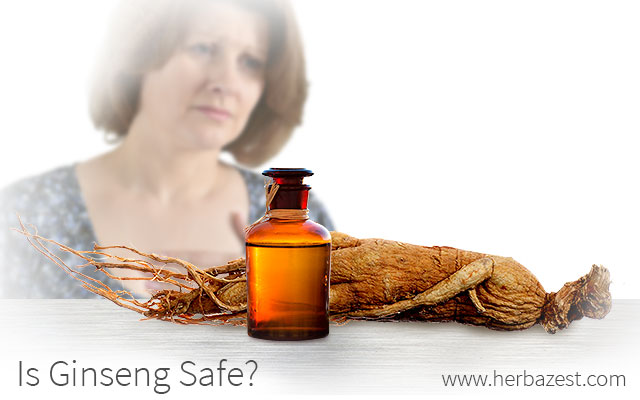Determining the safety level of ginseng is very important, as it is used to treat a long list of medical conditions. After extensive evaluation from a number of medical studies, ginseng has been classified as a safe herb as long as it is taken in normal doses.
How Much Ginseng Could Be Toxic?
While ginseng has been known to be safe and nontoxic, most of the research on the toxicity of ginseng dosage has been conducted on animals, and cases of people abusing and misusing the herb have been reported.
A study published in The Annals of Pharmacotherapy (2004) describes the case of a healthy 64-year-old male with normal blood pressure who experienced a hypertensive crisis (blood pressure of 195/95 mmHg) after taking a daily dosage of 500 mg of Panax ginseng for 13 days. After a week without consuming the supplement, his blood pressure went back to normal.
In another a human study, published in the Journal of Clinical Pharmacology (2012), 12 healthy adult males were evaluated after consuming 500 mg of Panax ginseng twice a day before and after 28 days of being given single oral doses of midazolam 8 mg and fexofenadine 120 mg. The results indicated potential toxicity of ginseng on liver and gastrointestinal enzymes when combined with these drugs.
After doing a systematic analysis of scientific studies, a review published in the Journal of Ginseng Research (2015) associated adverse reactions to ginseng with high doses and long-term usage, as well as with preexisting conditions and drug interactions.
Taking a high dosage of this otherwise healing herb for a long period of time could lead to dependency and cause "ginseng abuse syndrome," with symptoms that may include hypertension, nervousness, sleeplessness, skin rash, diarrhea, confusion, and depression.
Safest Ways to Consume Ginseng
The safest way to consume ginseng is to follow the recommended dosage for each specific form of the herb. Dried ginseng root can be chewed or infused in tea at a safe dose of 0.5 - 2 grams per day. Capsules are an easy and safe way to consume ginseng at 100 - 600 mg daily in divided doses. A dose of 200 mg per day of a standardized ginseng extract is another popular way to consume the herb. If a patient needs long-term treatment, a two-week ginseng-free period every two to three weeks is recommended for some people.
When Is it Not Safe to Take Ginseng?
In some cases, ginseng may be too risky to take at any dosage.
Ginseng is safe to consume during pregnancy. However, caution should be taken during the first trimester and during lactation.
Avoid taking ginseng with caffeine, insulin, stimulants, antidiabetic drugs, and anticoagulant drugs.
Individuals diagnosed with autoimmune diseases or schizophrenia, as well as those with organ transplants, should not take ginseng.
Ginseng Safety vs. Other Herbs
Ginseng is an exceptional herb that is capable of helping a number of specific body processes all while remaining safe for overall human health. Caution should be practiced just as with any herbal or prescription treatment, but ginseng is generally safe to consume in any form and with most other medication.
Ginseng is an extremely popular herb for these reasons compared to other herbs that, while they are beneficial for certain purposes, are also not entirely safe. Senna is an herb that, like ginseng, helps to stimulate immunity, but it has a negative effect on the intestines and can cause nausea, discomfort, and stomach cramps.
Scientific research suggests ginseng safety and efficacy in the treatment of many health conditions, and a normal ginseng dosage has been shown to be incredibly safe in combination with medical advice.
Sources
- American Family Physician, Panax ginseng, 2003
- British Journal of Clinical Pharmacology, Influence of Panax ginseng on cytochrome P450 (CYP)3A and P-glycoprotein (P-gp) activity in healthy participants, 2012
- Canadian Society for Clinical Pharmacology, Safety and Efficacy of Panax Ginseng During Pregnancy and Lactation, 2008
- Journal of Acupuncture and Meridian Studies, Systematic review of randomized controlled trials evaluating the efficacy and safety of ginseng, 2011
- Journal of Ginseng Research, Review of cases of patient risk associated with ginseng abuse and misuse, 2015
- Journal of Pharmacopuncture, Intravenous Toxicity Study of Water-soluble Ginseng Pharmacopuncture in SD Rats, 2015
- Public Health Nutrition, Efficacy and safety of ginseng, 2000
- The Annals of Pharmacotherapy, Transient ischemic attack secondary to hypertensive crisis related to Panax ginseng, 2004




